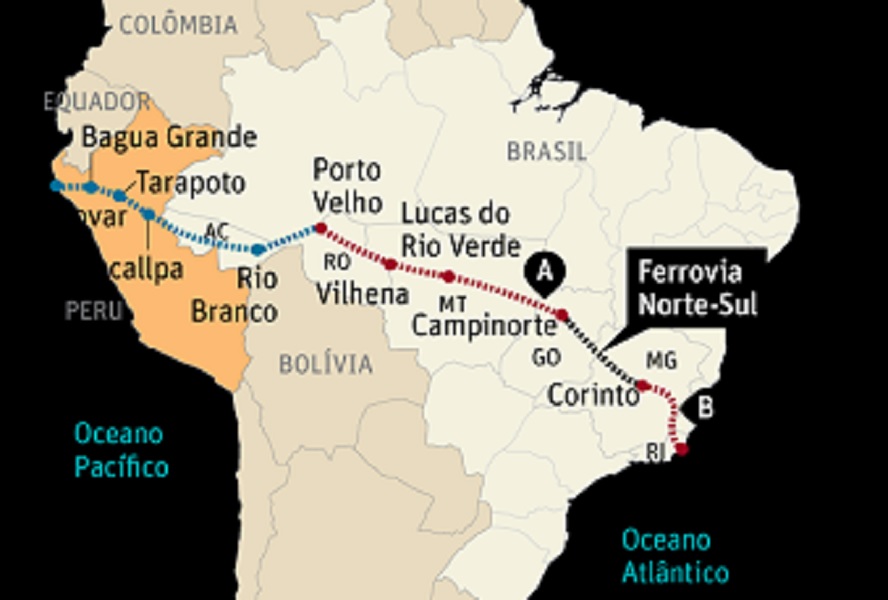
O Acrein the North of Brazil, is included in the call plan Nova Rota da Sedaa global infrastructure and development program led by the government of China.
Launched by the president Xi Jinping in 2013, the initiative aims to establish new trade routes and will be one of the main themes of the Chinese leader’s visit to Brazil in November this year, when he will participate in the G20 em Bethlehemno To.
Brazilian diplomacy has not yet fully committed to the Belt and Road Initiativewhich is financed by World Bank and by Chinese capital, mainly due to opposition from the United States, a close ally of Brazil.
On visit of Xi Jinping will be a decisive moment for the discussion about the country’s participation in the project, which already involves more than 150 nations and moves values in excess of one trillion dollars.
A Nova Rota da Sedaalso called Belt and Road Initiativeis an attempt to recreate the historic trade routes that connected East and West, promoting investment in infrastructure, especially in developing countries.
The initiative seeks to shorten maritime distances and strengthen commercial links through Pacific Oceanconnecting the Brazil — particularly on the border with Peruwhere the Acre — to the Asian market.
It is estimated that the project could contribute to an increase of up to 2.99% in the global economy, generating up to 7 trillion dollars by 2040according to the World Bank.
However, there are concerns about the economic impact of participating in the project, including the risk of debt and the countries’ dependence on Chinese investments.
The debate about Brazilian adherence to the project is intense. On the one hand, there is potential for significant improvements in the country’s infrastructure, as well as an increase in trade with China, one of Brazil’s main trading partners. On the other hand, the prospect of increasing public debt and loss of economic autonomy raises concerns.
The investments proposed by the initiative include financing for infrastructure projects considered critical, such as ports, highways and railways.
Financing conditions often require the use of Chinese labor and resources, which accentuates fears about economic dependence on the Asian country.
In addition to the economic impacts, Brazil’s adherence to the Nova Rota da Seda has important geopolitical dimensions, especially amid tensions between China e USA.
An eventual Brazilian participation in the initiative could directly influence Brazil’s relations with other global powers, which makes the decision particularly complex.
Within the Brazilian government, there is a division over membership. Some members of the administration see benefits in expanding investment and cooperation with China, while others remain cautious, fearing the possible consequences for national sovereignty and the geopolitical implications of closer alignment with Beijing.
Brazil’s decision to join the New Silk Road will depend on a careful analysis of the risks and benefits. This includes considering not only immediate economic gains, but also long-term impacts on national sovereignty and international relations, in a context where the Chinese presence in Latin America grows and global tensions between great powers persist.
The Brazilian government’s next steps will be fundamental in defining the country’s role in global economic dynamics and the effects of this positioning on the Acre region and the entire national infrastructure. Xi Jinping’s visit to Brazil, in November, will be an important milestone for these discussions, involving decisions that go beyond the economy, also affecting the country’s geopolitics and sovereignty.
Source: https://www.ocafezinho.com/2024/10/09/rota-da-seda-governo-chines-prepara-super-plano-que-promete-impulsionar-o-acre/

